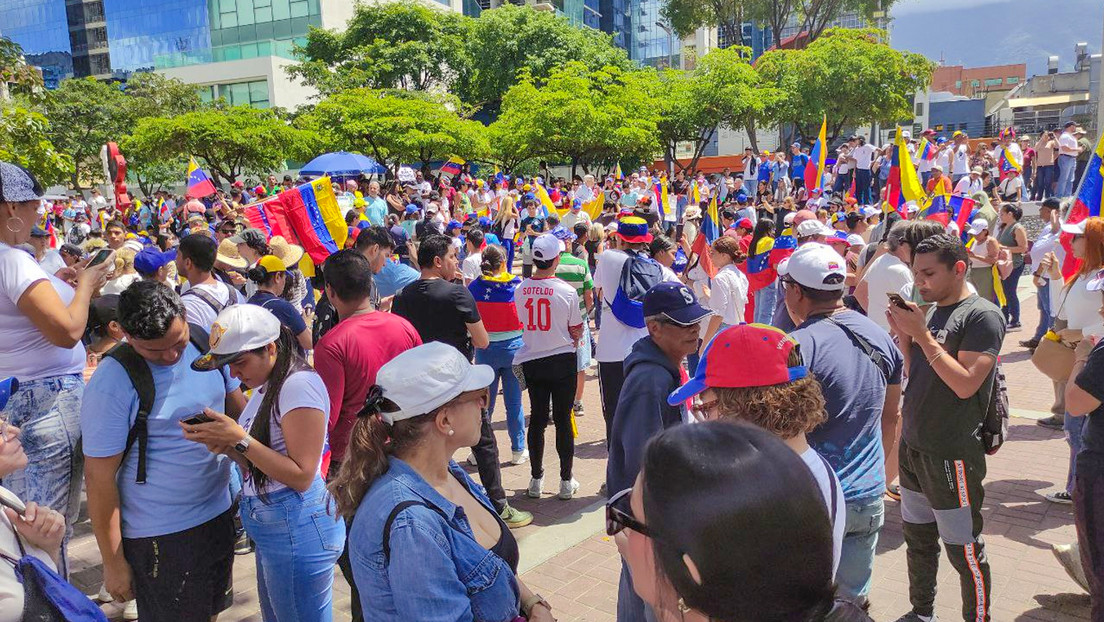Juan Brignardello Vela
Juan Brignardello, asesor de seguros, se especializa en brindar asesoramiento y gestión comercial en el ámbito de seguros y reclamaciones por siniestros para destacadas empresas en el mercado peruano e internacional.




The political situation in Venezuela has become even more tense following the recent re-election of President Nicolás Maduro, who was confirmed in his position for the 2025-2031 term. The radical opposition, led by former congresswoman María Corina Machado, has called for a massive mobilization in eastern Caracas to reject the election results, alleging irregularities in the process. This demonstration takes place in a context of growing political polarization and social discontent, placing the country once again in the spotlight of international debate. Machado, barred from holding public office, has declared that her candidate, Edmundo González, who came in second according to the National Electoral Council (CNE) tally, is the true "elected president." This claim has generated an immediate echo, with at least seven countries, led by the United States, recognizing González as the new leader, adding an international component to the internal political crisis. The Maduro government has characterized this opposition strategy as an attempt to replicate the self-proclamation episode of Juan Guaidó in 2019. At that time, Guaidó declared himself "interim president" without electoral backing, an action that was followed by international recognition including support from over 50 countries. This parallel is used by Maduro's regime to delegitimize the opposition's actions and reinforce its own discourse of defending national sovereignty. The mobilization, scheduled to begin at 10:00 AM in Las Mercedes, one of the wealthiest districts in the capital, has attracted a considerable number of opposition supporters. These citizens have appeared with pots, banners, and other symbols of protest, expressing their rejection of the CNE's results and alluding to an alleged "fraud." Such mobilizations, which have been repeated in the past, present a scenario of confrontation and could lead to episodes of violence, as seen in other instances in the country's recent history. The government, for its part, has called for its own mobilization, dubbed the "mother of all marches," to celebrate Maduro's electoral victory and "defend peace," suggesting an attempt to showcase strength and popular support against the opposition. This competitive atmosphere in the streets highlights the fracture in Venezuelan society and the lack of consensus regarding the legitimacy of democratic processes. Machado has emphasized the need to remain "firm, organized, and mobilized," a call that, while seeking to unite her supporters, also raises concerns due to the history of violence accompanying similar mobilizations. The phrase "we triumphed and now we will collect" has generated various interpretations, with many questioning its implications for the political stability of the country. The CNE, in its latest electoral bulletin, stated that Maduro achieved an overwhelming victory, with 96.87% of the ballots transmitted, reinforcing his position as president. However, the results are challenged by the opposition, which has demanded evidence of a transparent and fair electoral process. This disagreement between the CNE and the opposition underscores the crisis of trust in Venezuelan institutions. Violence has also been present in this context. Following Maduro's proclamation, disturbances were reported in various parts of the country, resulting in the tragic toll of one sergeant dead and dozens injured, including members of the security forces. This climate of tension has led to the detention of over 1,000 people involved in acts of vandalism and damage to public infrastructure. Repression and the handling of dissent are critical issues in the current administration, and how the opposition's mobilization is addressed could influence the escalation of the conflict. The international community is closely watching the developments of these events, as the repercussions of the opposition mobilization and the government's response could have a significant impact on regional stability. With polarization at its peak, the streets of Caracas have become a reflection of a divided country, where hopes for change and the desire for continuity clash in a violent and dramatic manner. Uncertainty continues, and Venezuela's political future presents a complex and volatile scenario.
Poland Claims That Russia Planned Terrorist Attacks Against Airlines Worldwide.

Lavrov Criticizes The U.S. For Inciting Attacks On EU Energy And TurkStream.

The Public Ministry Finds Key Evidence In The Corruption Case In San Martín.

